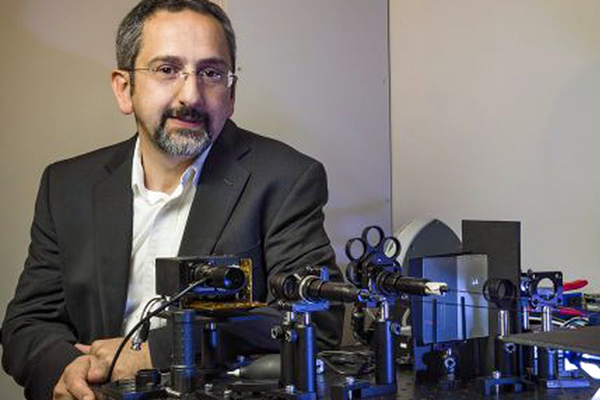
Excerpt from the Dayton Daily News
A Wright State University professor who is working to develop new ways to detect and treat small tumor nodules in ovarian cancer has been awarded a $1.7 million federal grant.
The five year grant is from the National Cancer Institute in the National Institutes of Health.
“Our approach is expected to significantly improve detection and destruction of small tumor nodules in ovarian cancer patients and reduce side effects in normal tissue such as the intestines and liver, thereby improving patients’ survival rates and quality of life,” Ulas Sunar, an Ohio research scholar and endowed chair in medical imaging, said in a release.
Sunar and his team have been working on the technology for the past several years. They’ve built a flexible fiber-based endoscope that can be inserted into a body cavity or organ, according to the release. The endoscope features quantitative fluorescence imaging that can detect lesions in internal organs better than conventional fluorescence imaging and other imaging methods, the university said.
Tissue tends to absorb conventional light and diminish the fluorescence imaging contrast. However, Sunar and his team’s endoscope corrects for this light attenuation, resulting in an improved fluorescence contrast so that clinicians can better delineate cancer from surrounding normal tissue, according to the release. This approach also allows for measurement of absolute drug concentration at the local tumor site and normal tissue without any need for invasive methods.
“The same endoscope can be applied to oral, lung and gastrointestinal cancer diagnosis as well as brain imaging during surgery,” Sunar said.

